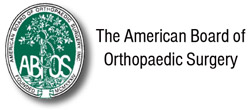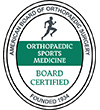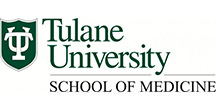Does losing weight make an athlete better? Associations between body composition and performance
In endurance sports such as running and cross-country skiing, a lighter body weight can improve relative power generation and reduce energy consumption. However, losing weight requires an energy deficit, which can negatively impact health and performance. Therefore, weight optimization always involves balancing the benefits and risks. In addition to weight, body composition can also impact an athlete's performance.
Source: Medical Xpress
Treatment Options for Calcific Tendonitis of the Shoulder
Calcific tendonitis is a common source of shoulder pain and can be a frustration given the severity of pain and the duration of symptoms. However, the news is not all bad. On a positive note, the vast majority of patients do find relief with nonsurgical treatments for this condition.
Source: Verywell Health
Reduced opioid use found after knee surgery with mini-scope technique
A new study led by Marshall University researchers found that patients who underwent knee surgery using a minimally invasive "needle arthroscopy" technique used significantly fewer opioids after surgery compared to those treated with standard arthroscopy.
Source: Medical Xpress
Study finds surprising differences in knee injuries between men and women
One of the largest MRI-based studies comparing knee injuries between men and women reveals surprising differences in injury patterns based on gender and age. The findings, which can be used to improve risk assessment and develop early intervention strategies, will be presented today at the annual meeting of the Radiological Society of North America (RSNA).
Source: News Medical Life Sciences
What Is the P.O.L.I.C.E. Principle?
The P.O.L.I.C.E. principle may be the new way to ice and otherwise treat a musculoskeletal injury, such as a sprain or strain. The acronym stands for the five steps involved: protection, optimal loading, ice, compression, and elevation. One thing it's missing? Rest, a component of the long-used R.I.C.E. method (rest, ice, compression, and elevation). Some healthcare practitioners now consider P.O.L.I.C.E. an advanced and favored approach.
Meniscal Tear Repair: What’s New in the Literature?
Meniscal tear repair has become the gold standard modality for treating different types of meniscal tears. Despite the availability of numerous repair techniques, the ideal approach remains unclear, especially for complex and irreparable tears. Recently, innovative techniques have emerged to address these challenges, including hybrid/salvage techniques, meniscal scaffolds, and the introduction of biologics as part of the treatment.
Traumatic Versus Atraumatic Causes of Shoulder Impingement Syndrome: A Systematic Review of Pathophysiology and Outcomes
Shoulder impingement syndrome (SIS) is a common musculoskeletal disorder caused by traumatic or atraumatic factors, resulting in pain, functional limitation, and reduced quality of life. This systematic review aimed to summarize the pathophysiology, anatomical changes, and functional outcomes of traumatic versus atraumatic SIS.
What Causes Infraspinatus Pain and How Can You Treat It?
The infraspinatus muscle works alongside three other rotator cuff muscles to stabilize and move the shoulder. This triangular-shaped structure primarily externally rotates the arm. This means it rotates the arm toward the outside of the body. It also assists with moving the scapula (shoulder blade) when your shoulder joint is fixed (not moving). Occasionally, repetitive movements or other disorders can cause pain in this muscle.
Aerobic exercise found to be most effective for knee osteoarthritis
For patients with knee osteoarthritis, aerobic activities such as walking, cycling, or swimming are likely to be the best exercise for improving pain, function, gait performance, and quality of life, finds a study published by The BMJ today.
Q&A: How sports-related concussions affect reaction times
When playing sports, it's important to remember: Brains don't have seat belts. When rapid acceleration or deceleration of the brain inside the skull occurs with a blow to the head, a concussion happens, which in some cases can lead to lasting impacts on motor and cognitive skills needed to keep athletes at the top of their game.





